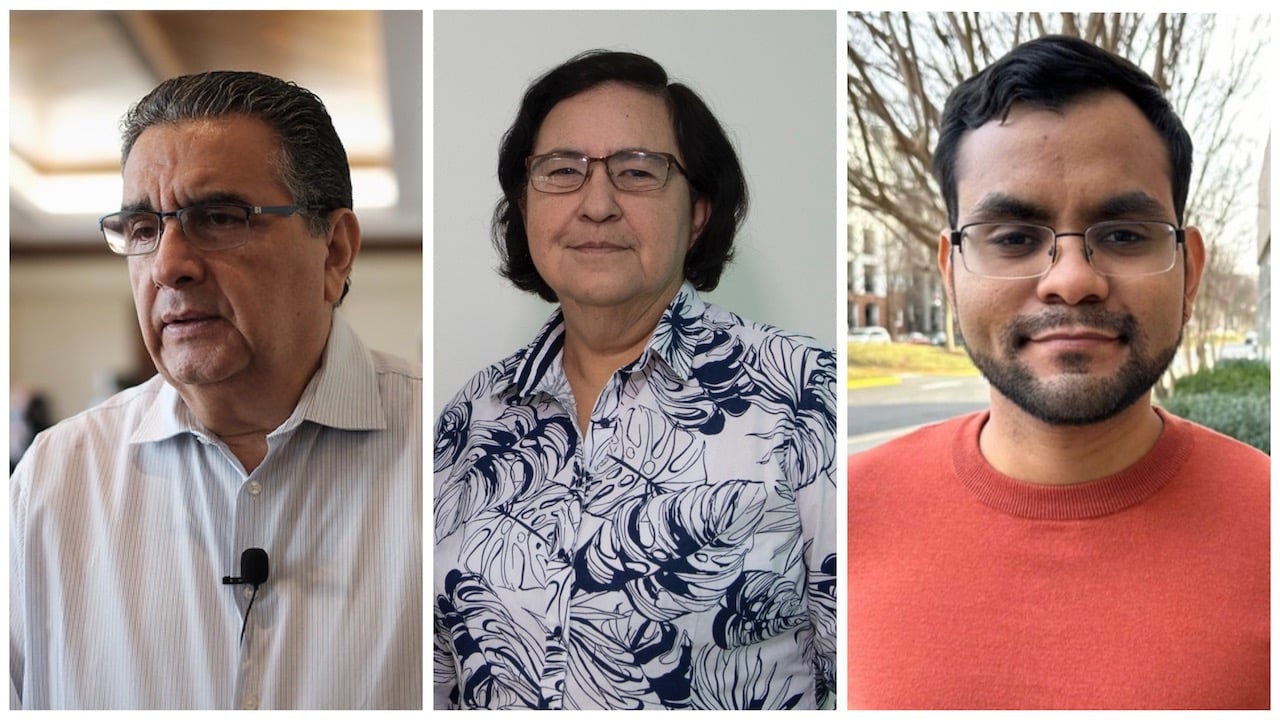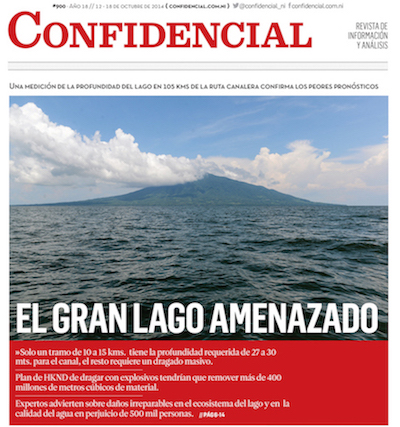27 de octubre 2016

Dialogue and Elections: “The Peaceful Way Out of the Dictatorship”

PUBLICIDAD 1M
PUBLICIDAD 4D
PUBLICIDAD 5D
Quality journalism that plants seeds of truth is part of the change that will prevail in this country

The magazine “Confidencial” was born in July,1996, on the eve of a presidential election during those years of democratic transition that Sofía Montenegro termed: “Nicaragua’s springtime of free expression.” She was alluding to the unusual climate of State tolerance towards critical journalism that was established during the government of my mother, Violeta Barrios de Chamorro. These were times of change, marked by profound political and democratic reforms, when the citizens even exercised their right to the popular inscription of movements and candidates to participate in the elections.
In the context of that political and economic opening, new media flourished: newspapers and magazines, radio and television, under the common denominator of promoting the professionalization of the press. This proved to be a necessary, but insufficient goal. And that’s how the idea of founding Confidencial arose one year after the creation of the television show Esta Noche [Tonight] as a project aimed at filling the existing vacuum of analysis and investigation in the national press.
My chief support and inspiration was Noel “Skinny” Irías, a young man with an exceptional analytical and intuitive intelligence, a pioneer of investigative journalism with a scathing sense of humor. Noel passed away before seeing the first edition published, and the editor’s baton passed to journalist Roberto Fonseca. A group of friends and professional colleagues – Arturo Cruz, Mario de Franco and Arnoldo Martínez Salvo – were the original founding partners of this enterprise, which really was closer to what they now call a “start-up”.
Confidencial began with the commitment to exercise a profound journalism, to make power accountable and promote public debate, with the conviction that elections are barely a minimum requirement for a functioning democracy. For democracy to put down roots and consolidate, the power structure must be held accountable within a regime of transparency and citizen’s empowerment. This is one of the inescapable functions of the independent press, even though it may mean a constant swim against the current.
We were also born with the medium-term ambition of seeing this modest publication grow beyond its newsletter format into a full-fledged magazine in the best tradition of other regional publications of our era, such as Crónica in Guatemala, Semana in Columbia, or Proceso in Mexico.
Along this twenty-year road, we’ve accomplished our fundamental proposal: firstly, we’ve survived for twenty years - no small achievement in the life of a weekly. Moreover, the publication has become a point of reference that puts first its commitment to its readers to investigate and tell the truth. In this way, we’re defending freedom of opinion and critical thinking, despite all the obstacles and reprisals we’ve faced from both the public and the private powers.
The second objective – transforming Confidencial into a “grand paper magazine” – wasn’t possible. All of the market feasibility studies we conducted counseled against an investment of that caliber, not for lack of readers and potential buyers, but for lack of advertisers. Fortunately, the new world of the internet and the opportunities it offered for journalism within a digital platform allowed us to take an unexpected turn. Since 2010, Confidencial has become a digital site (www.confidencial.digital), and this year we’ve added the magazine Niú (www.niu.com.ni) with the possibility of reaching and interacting with tens of thousands of readers daily.
As a natural consequence, the next step in our process was to integrate the production of the two television programs under my direction - Esta Semana [“This week”] and Esta Noche [“Tonight”] – into one single editorial staff with Confidencial. This was done as much for reasons of synergy and efficiency in our professional and technical resources as to promote the same vision and passion for journalistic excellence across all the platforms within our reach: printed, televised and digital.
The young and still-too-small multimedia production currently led by Carlos Salinas, editor of Confidencial, and Juan Carlos Ampié, who produces our audiovisual products, is serving as a little workshop to learn while doing journalism. In this setting, innovation goes hand in hand with the fundamentals of the trade: to report, investigate and disseminate trustworthy information and at the same time carry out good narrative reporting to tell important stories.
Today, twenty years later, we are publishing our 1,000th edition under conditions radically different from those of our birth - under an authoritarian regime that maintains a permanent harassment directed at the independent press and the constitutional right to freedom of expression. Not only have they imposed a system with nil transparency in terms of access to public information, thus creating a breeding ground for the cultivation of unchecked public corruption, but also they are trying to establish a norm of fear and self-censorship among the citizens.
This all worries us, and at times we feel overwhelmed by the outsized expectation of our readers. Faced with the collapse of all of Nicaragua’s institutions - the failure of the justice system, Parliament, the Comptroller and even the police - they resort to Confidencial and the country’s scarce independent press to denounce the injustice and abuses of power, seeking solutions that we can’t offer them. But we’re also encouraged by the voices that don’t bend under intimidation; those that defend at all costs our freedom of conscience; and those that, running still greater risks, pass on information from within the public sector about the corruption that the official monologue seeks to hide.
For that reason, despite the moments of great uncertainty that Nicaragua is going through, we look to the future with optimism. Because thanks to the backing of our citizens, the quality journalism we still insist on in Confidencial, journalism that plants seeds of truth, already forms part of the change that - sooner or later - will prevail.
This article has been translated from Spanish by Havana Times.
Archivado como:
PUBLICIDAD 3M
Periodista nicaragüense, exiliado en Costa Rica. Fundador y director de Confidencial y Esta Semana. Miembro del Consejo Rector de la Fundación Gabo. Ha sido Knight Fellow en la Universidad de Stanford (1997-1998) y profesor visitante en la Maestría de Periodismo de la Universidad de Berkeley, California (1998-1999). En mayo 2009, obtuvo el Premio a la Libertad de Expresión en Iberoamérica, de Casa América Cataluña (España). En octubre de 2010 recibió el Premio Maria Moors Cabot de la Escuela de Periodismo de la Universidad de Columbia en Nueva York. En 2021 obtuvo el Premio Ortega y Gasset por su trayectoria periodística.
PUBLICIDAD 3D